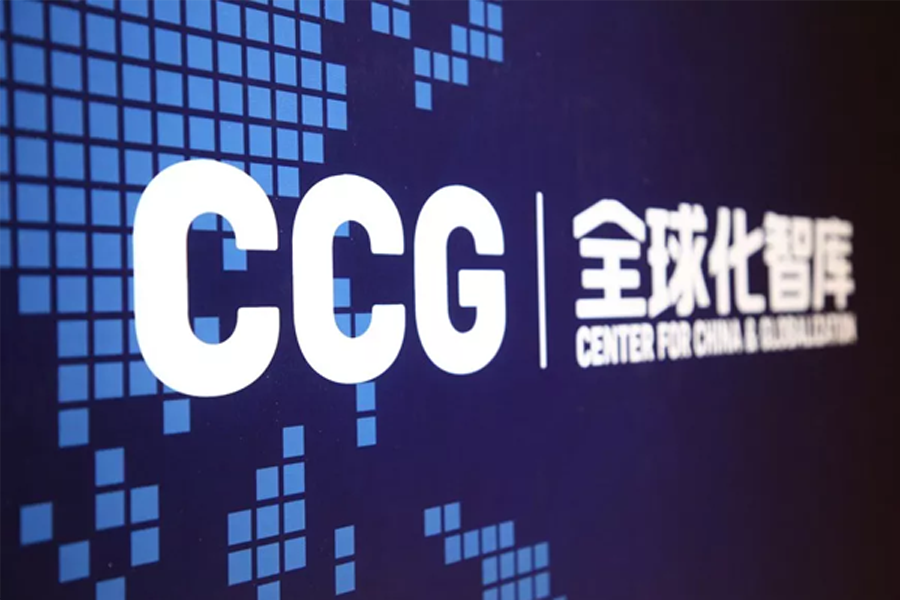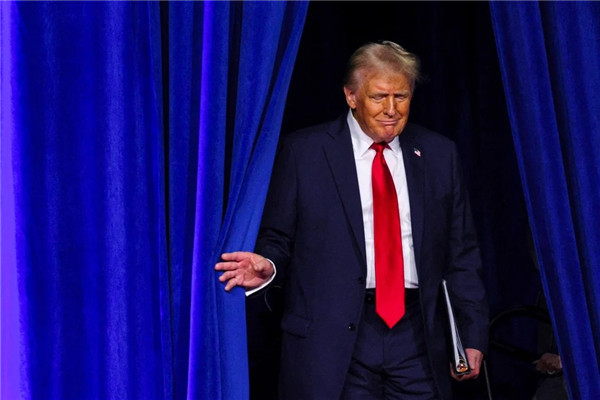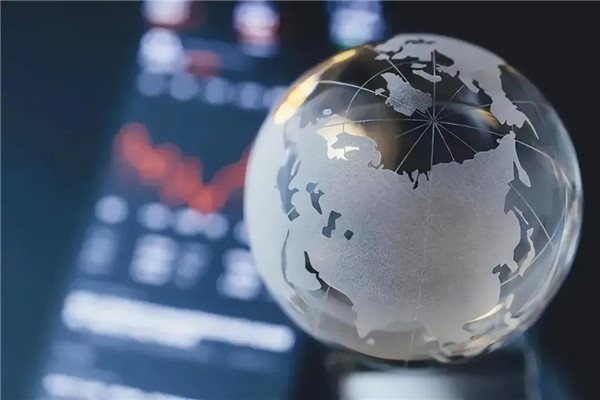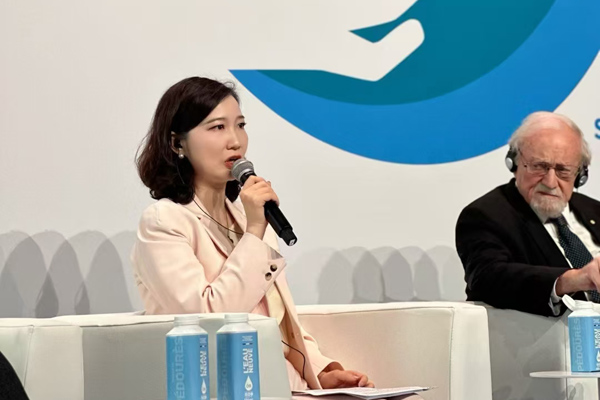Xu Fangqing: China’s Africa aid from a perspective of virtue and benefit
2018年9月6日Doubts and even conspiracies surface every time a major event takes place between China and Africa.
With the Beijing Summit of the Forum on China-Africa Cooperation (FOCAC) around the corner, such routine reports are being churned out. For outside doubters, the summit is providing fodder for their allegations of “neocolonialism,” meanwhile domestic cynics question the rationality of China supporting Africa when remote areas across the country still witness poverty.
There is a bit of truth in some of these concerns. China is indeed still a developing country with 40 million people below the official poverty line. But skeptics neglect the truth that China today is the world’s second-largest economy and that we used to be a recipient of foreign aid from such countries as the US, Japan, the United Kingdom and Germany.
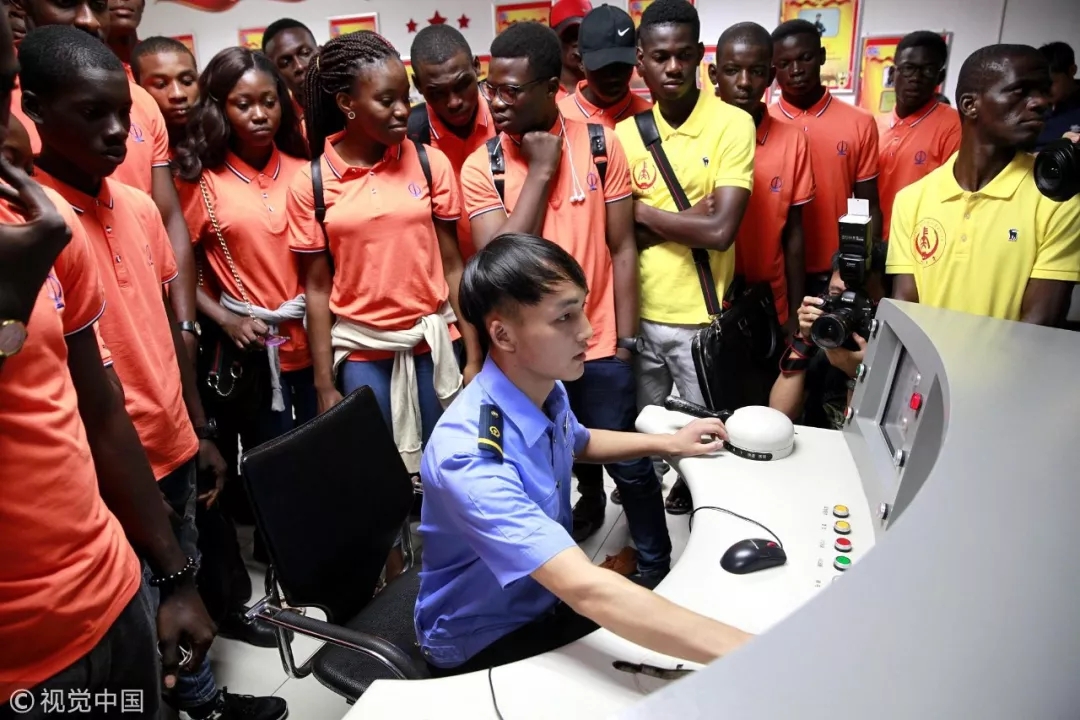
Nigerian students visit the largest motor train maintenance base in Xi’an, northwest China, on August 29, 2018. /VCG Photo.
In order to shoulder our responsibility as a major power and one of the five permanent members of the UN Security Council and safeguard our political and economical interests in the international community, such international aid packages are inevitable and necessary.
Given the long-term peaceful win-win cooperation and rapport with African countries throughout history up to this day, China is willing to assist those in Africa who are eager to shake off poverty and develop their local industries.
Many misunderstand the foreign aid as donations from the rich to the poor. But there are many forms to materialize the assistance such as free donation, medium- or long-term loans with low or zero interest rates.
In no way does aid solely benefit the recipients. It’s actually reciprocal, and the Chinese assistance to African countries exemplifies this.
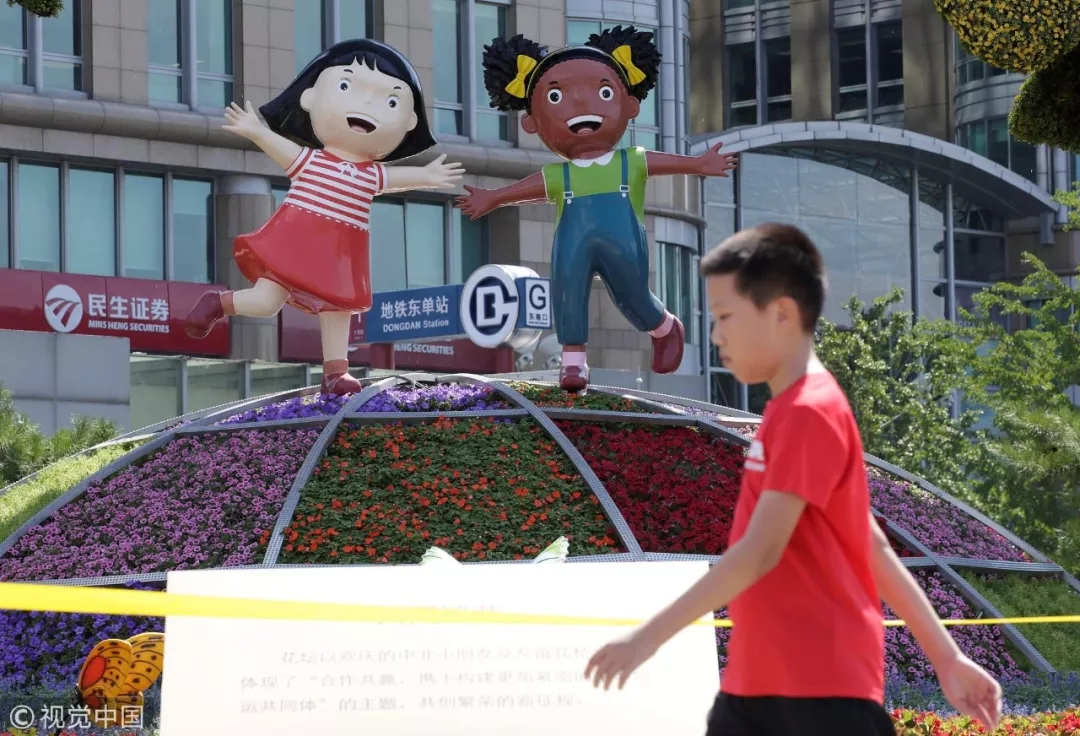
A boy walks past a flowerbed decoration for the upcoming Forum on China-Africa Cooperation (FOCAC) in Beijing, China on August 31, 2018. /VCG Photo
On one side, China appreciates decades of unwavering African support for the country in international issues. On the other, the aid to Africa has promoted their basic industries and infrastructure effectively and comprehensively which in turn made Africa a major resource of raw materials and massive market for Chinese products.
The aid to Africa benefits the locals and Chinese enterprises who are seeking to develop their overseas markets amid ongoing economic overhauls in China.
The “Belt and Road Initiative” has been welcomed by African countries since it was first introduced in 2013.
The FOCAC summit is a good opportunity to deepen bilateral cooperation between the two sides as Chinese and African leaders meet as of Monday.
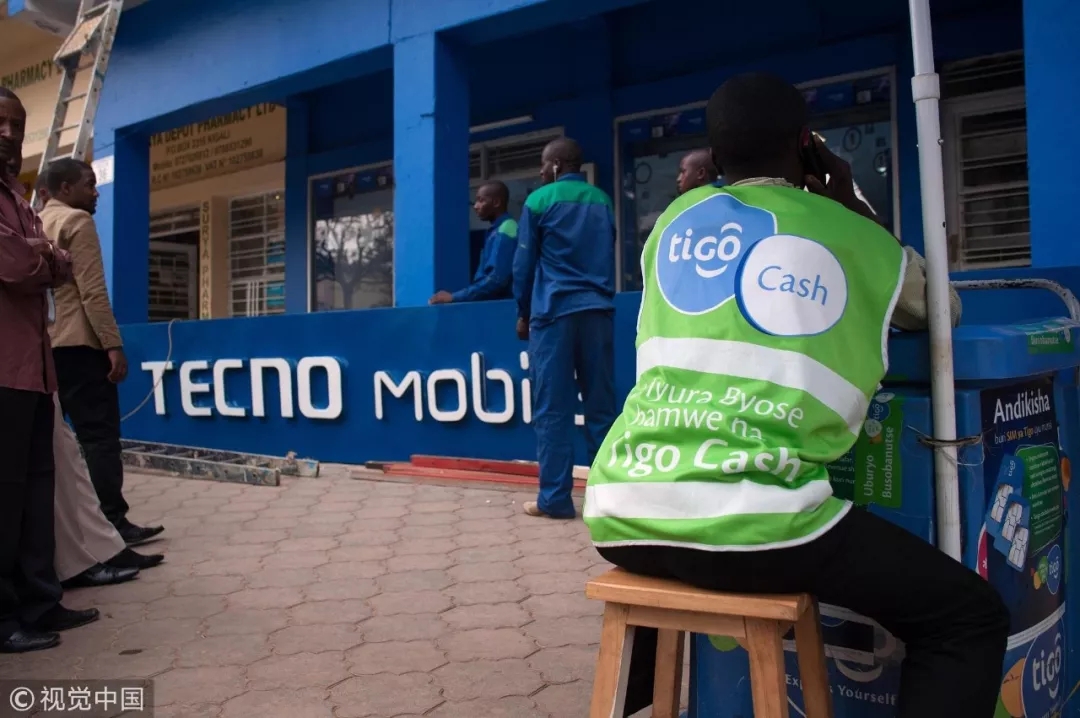
Workers prepare to hoist a Tecno Mobile sign above a new phone retail store ahead of opening in Kigali, Rwanda, on September 18, 2013. /VCG Photo
Coincidentally, Chinese President Xi Jinping expressed the notion of righteousness and benefit when he visited Africa back in 2013. The principle has become a guiding light for China’s diplomatic practices, especially in Africa.
The global chain has integrated nearly every country on this planet and the trend would not change despite the current setbacks to globalization and regional cooperation.
China, as one of the active participants in and supporters of the global development, therefore should enhance its openness and boost its outbound aid to fulfill its responsibilities and righteousness as a major power.
At same time, we hope Chinese citizens could learn to see this world from a wider and more rational filter and understand China’s obligations when it comes to overseas donations and assistance.
In order to build a community of shared future for mankind, China needs to bear more international duties, as it would eventually benefit it and its own people.

Xu Fangqing, a non-resident fellow with Center for China and Globalization, a senior editor with China News Week.
From CGTN,2018-9-2
